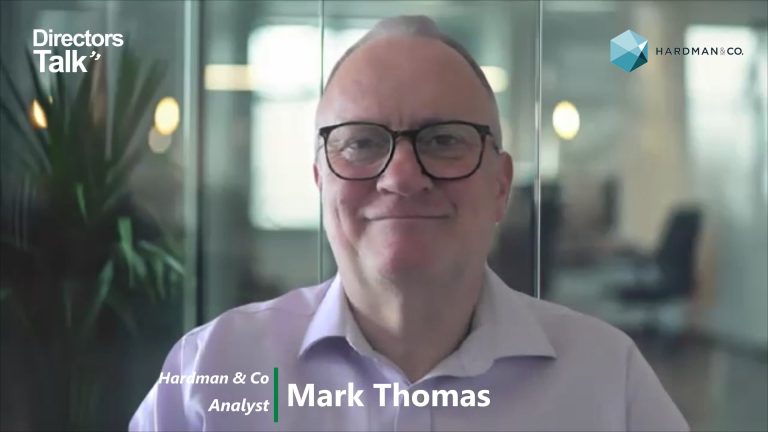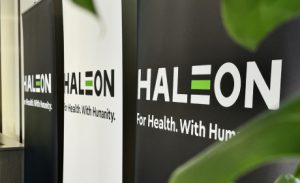Fulham Shore plc (LON:FUL) is the topic of conversation when Hardman and Co’s Equity Analyst Jason Streets caught up with DirectorsTalk for an exclusive interview.
Q1: Can you tell us briefly what Fulham Shore’s business is?
A1: They are a restaurant business in the UK and it has two brands; Franco Manca and The Real Greek. The are 66 Franco Manca’s across the country and 23 The Real Greek’s in London and the south-east.
Franco Manca is a sourdough pizza offering and it’s designed to be a neighbourhood brand appealing to a loyal local following rather than casual passing trade.
The Real Greek is a bit different. It’s a modern Greek cuisine and it’s vibe is big parties, it has very little direct competition unlike the pizza business which obviously is a much more crowned market.
The company is led by a highly experienced management team. David Page who was the Chief Executive of Pizza Express in its glory years from ’93 to 2002 is the Executive Chairman. He subsequently went on to found the Clapham House Group which is the owner of the Gourmet Burger Kitchen. So, it has a very experienced team running it.
Q2: Now, Covid must have been difficult for them, how did they fare through that?
A2: Covid hit all restaurants very hard and FUL, with a March year-end, saw the year to March 2021 take the full force of the pandemic and a further 16 weeks in the year they’ve just reported to March 2022 were also affected.
Revenue in the year to March 2021 per restaurant more than halved in The Real Greek and was 40% down in Franco Manca but they managed to stay EBITDA positive with help from the takeaway and delivery business, and also some of the government programmes. So, that net debt actually fell during the year to March ’21 while they managed to open 3 new restaurants.
The worst hit businesses were those in the city centres but most of that has come back now unless they’re sited very specifically in office areas with little tourist traffic.
Last year saw revenue and EBITDA more than double, back up to record levels.
Q3: What are the opportunities for the business now?
A3: I think it’s interesting because Covid’s obviously had a silver lining for the company because the first few years of its existence, the management was rather frustrated by the over capacity in the industry and the rapaciousness of landlords. Before Covid struck, the restaurant business as a whole in the UK was in trouble with over geared companies run by inexperience management teams paying top dollar rent. The total number of restaurants in the UK, whilst it peaked in 2015, really started to decline seriously in 2018 and the impact of Covid has basically been to accelerate that decline.
So, there are now somewhere around 17% fewer restaurants than there were at the peak so there’s much less competition for customers but also, and just as importantly for the company, the property market is now a tenants market and the landlords are finally on the back foot.
It’s intending to open about 18 new restaurants in each of the next 3 years and these will be at substantially lower rents, half in some cases than they would’ve been paying previously, and with some generous contributions from landlords for fitting out costs.
So, for a company with the big growth plans that they have, this is a huge benefit.
Q4: Can they afford the expansion without recourse to new equity?
A4: We think so. The company ended March ’22 with £4 million of net cash excluding the leases and it has nearly £18 million of bank facilities. We estimate that over the next couple of years, it will only dip into £7 million of that while opening 36 new restaurants.
So, it’s starting this growth surge in a very strong financial position.
Q5: What are the immediate prospects like?
A5: Not easy, in my view. Obviously, there’s inflation in wages, in food prices and energy to contend with and there’s the impact of those price rises on their customers’ spending power.
The company’s management is very experienced, it was operating when we last saw inflation like this in the 1990’s and it has plans to mitigate those cost increases where possible. It also has the advantage that it’s priced very very compatibly and so whilst there may be some custom dropping off the bottom, there should others trading down into their restaurants.
So, we think it will compete as well as anybody in the storm that’s about to come.
Q6: How does Fulham Shore’s valuation compare with its peer group?
A6: On our estimates, it’s trading on a December ’22 EBITDA – I’ve calendarized all of the numbers) of 7.6 times, falling to 6.2 times the following year so this is cheaper than the peer group that we look at.
That peer group is various eateries, lounges, The Restaurant Group and the City Pub Group, and they trade on an average 9.9 times December ’22, falling to 7.8.So, if it was to trade on that average, it would now be around 19p-22p compared with today’s 13p per share.
We’ve also looked at what the company might be worth in 7 years’ time when it could have 200 restaurants and our calculation is on that basis, it should be worth around 27p today which is 54p in 7 years’ time, discounted back at 7% relevant to today.
So, in effect, what we’re saying is it has built a platform from which it can expand its estate 2.5 times and investors can have confidence that the management is fully capable of achieving that growth and it has the cashflow and the debt facilities to fund that growth. This represents a very interesting opportunity, we believe.









































